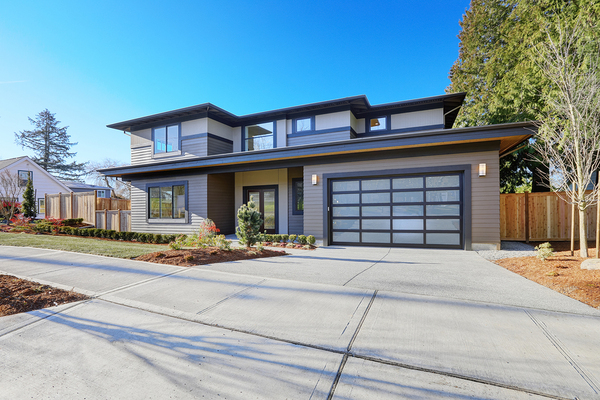Is New Construction Right for You?
 Should you look for a newly-built home?
Should you look for a newly-built home? When you're looking at new homes for sale, it's possible that the right home for you is not even built yet. You might do best with a home that's under construction, one that can be customized to your needs. However, new homes have their benefits and drawbacks: Is new construction right for you?
It's Shining and New: But You May Need to Wait
One of the big attractions of a new home is that there are very few modifications that you have to make. You don't need to tear out old, stinky carpet or paint the walls. You don't need to deal with the fact that there was mildew in a corner ten years ago, and it's still a problem today. You don't panic when you invite the home inspector over to visit.
However, the downside to newness is that you may need to wait for your home to be built. If you buy in the pre-construction phase, it could take longer than anticipated to complete your home if there are construction delays. This can make your life awkward for a while, especially if you've already sold your previous property.
It's Modern
If you love all of the modern amenities and fixtures, a new home could be right for you. According to Forbes, "new homes come with some of the design elements that today’s lifestyle demands: open, eat-in kitchens, walk-in closets, and large master baths to name a few."
However, if you're in love with the stylings of an era gone by, your new home won't have that retro feel. Modern construction won't have the same character you'd find in homes built during the early 1900s, but you can find new builds that try to replicate the feel of different eras of construction.
There Are Fewer Large Renovations Around the Corner
For the most part, buying a new home means that you won't need to conduct major renovations for a few years, especially if you buy early and have the opportunity to customize appliances, systems, and finishes. You buy a home that you enjoy, and you don't need to schedule a large kitchen reno. However, buying a home that doesn't have a track record can mean that the problems just show up later. For instance, if the homes are not quite suited to the climate and they leak, or the developer took shortcuts when creating the foundations, you could find yourself in the midst of a huge renovation or lawsuit years from now. While this doesn't happen to every new home on the market, you are buying something that hasn't yet had its trial run.
 Buying a new home? You could be buying a more efficient home as well.
Buying a new home? You could be buying a more efficient home as well.New Homes Are More Efficient
When you're buying a new home, the homebuilder has put an investment of time and materials into the home. Today's materials and design techniques often have energy and water efficiency in mind. If you want to save money and have a lower impact on the environment, this is a possibility with these newer builds. Of course, not every new home is efficient: this also depends on the size of home that you choose and the way that you use it. According to Treehugger, new buildings are often larger by about 30 percent, and that means that they "consume just a bit more energy than houses built a decade ago." However, overall, new homes are more efficient than an older home of a similar size.
The Neighborhood Could Be a Blank Slate
If you're moving into a neighborhood of new homes, then you and your neighbors have the opportunity to create that neighborhood feeling. There aren't existing cliques, problems, or norms. However, that can be a challenge as well. If you want to move somewhere with an existing culture, somewhere where your neighbors will greet you and talk about all of the activities that already go on in the neighborhood, then an established neighborhood with a new house could be a better choice.
At Open For Homes, we want to help you make the best housing choices for your family. Visit us to learn about everything from new homes for sale to apartment living at the blog at Open For Homes.

